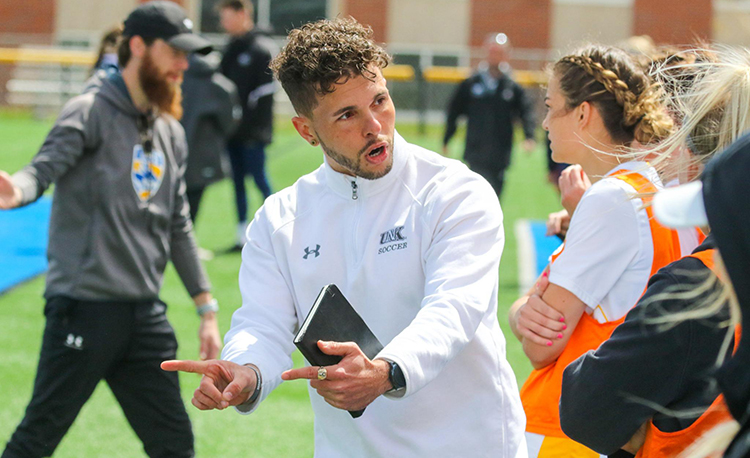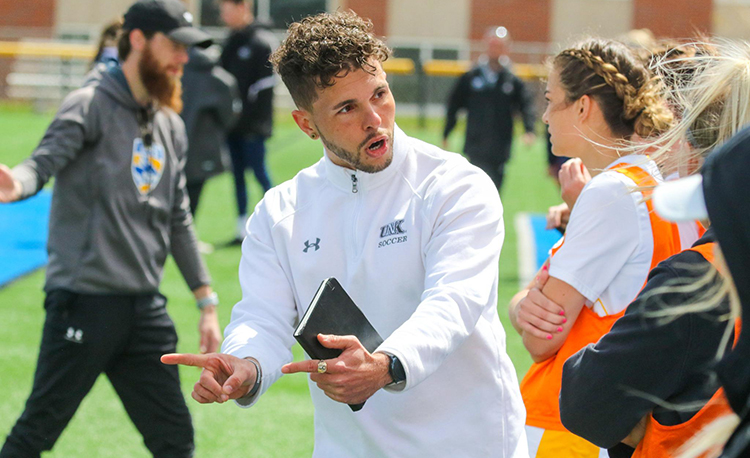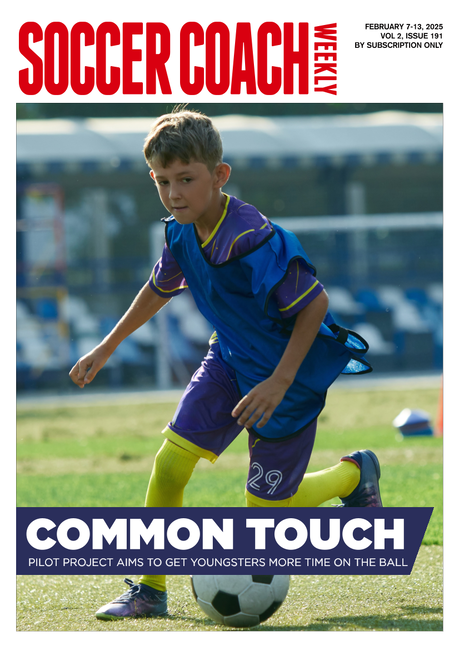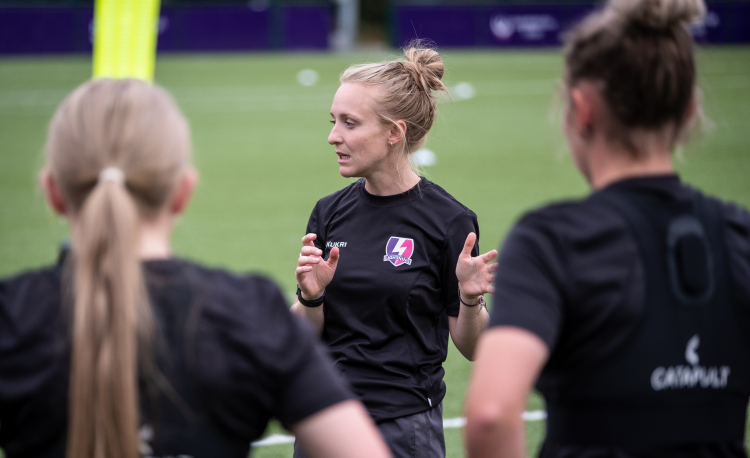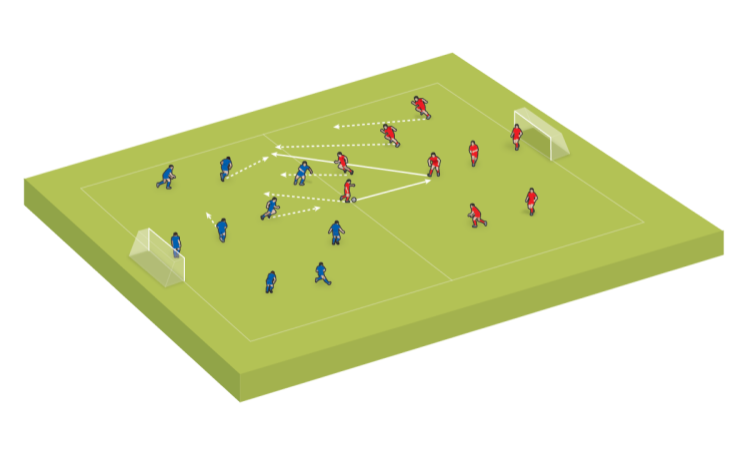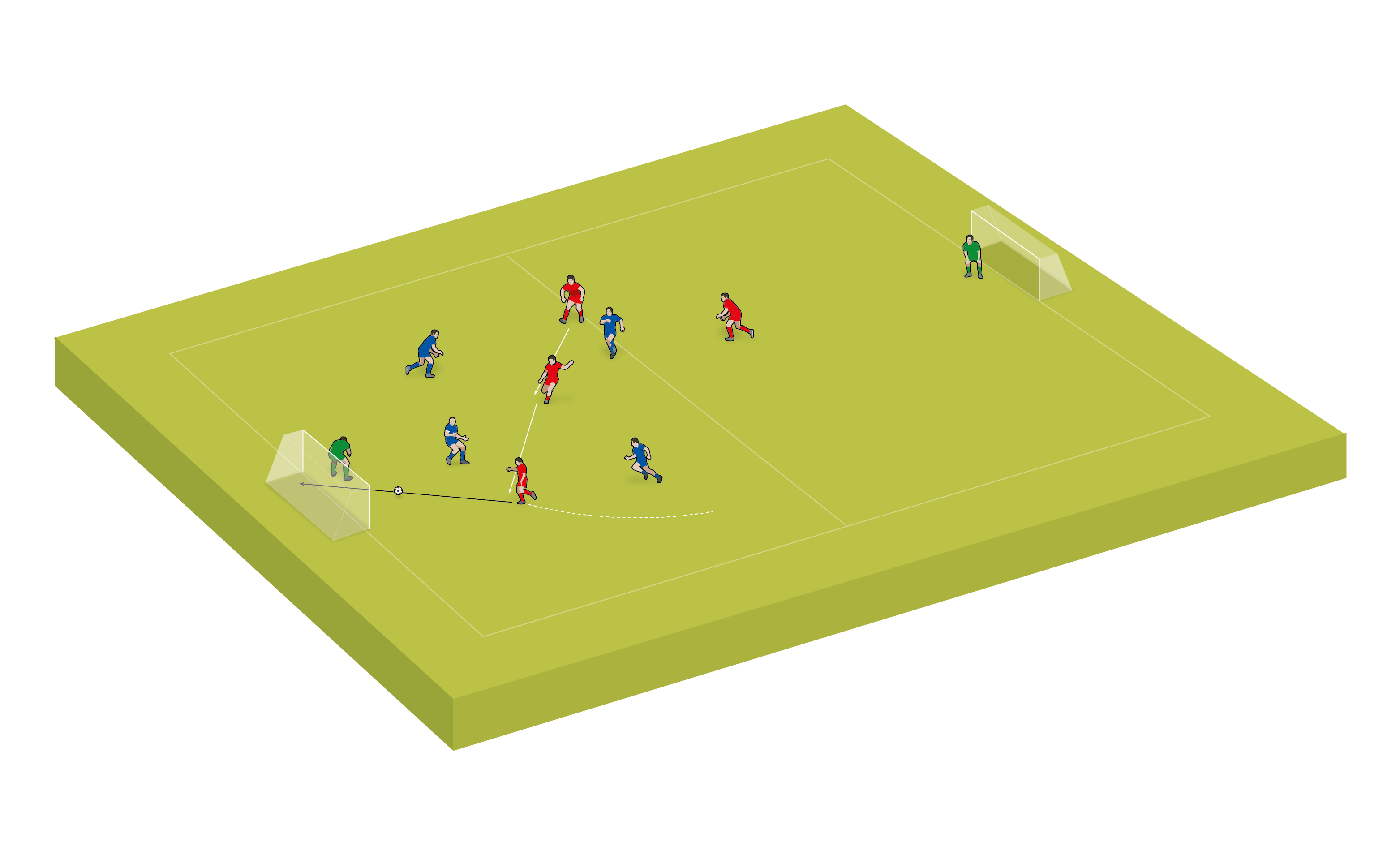Winless year could yet be 'jump-start'
No victories on the pitch, but plenty off it - ROB BRETON discusses the lessons he learned during a tough first season as a head coach, with STEPH FAIRBAIRN
Rob Breton has been coaching since the age of 17.
He started out as a youth coach before moving into the US college game, spending four years as an assistant women’s coach at NCAA Division II team Alderson Broaddus University in West Virginia.
During his time at AB, Rob also assisted with the Battler men’s soccer program and was girls’ head coach at Clarksburg’s Excel Futbol Club.
He has since stepped into a head coach role, taking the reins of the women’s team at the University of Nebraska at Kearney – a Division II institution in the MIAA conference. Rob calls it "the best decision he ever made".
SCW caught up with Rob to talk about how he knew he was ready for the jump to head coach, what his first season in charge looked like, and how to create the optimum environment for your players...
SCW: What was it that made you think ’I’m ready to step into a head coach role’?
RB: “I had been doing a lot of portfolio management for apartment complexes, prior to becoming a college coach. So I understood the business side, but not the recruiting aspect, all the backend business that goes into the planning of the season.
“So during my four years as an assistant [at Alderson Broaddus], my head coach gave me a lot of freedom - he gave me a lot of opportunity to try things and fail. That gave me the ability to learn at a much quicker curve than most people do.
"He gave me the freedom to do everything from budget managing, to gear orders, to planning sessions, to writing programming, to scheduling recruiting trips, the entire job.
“After that four years, it got to a point where he and I had an honest conversation.
"He said, ’There’s not going to be much more progress for you at this position. You need to go somewhere where you’re going to continue to learn and can take final control of everything’. So I just decided to start applying for jobs."
SCW: How did that first season go? Where were you as a coach at the start of the season and where are you now?
RB: "The season was definitely a learning curve for everyone. I got here in the middle of April and had three weeks with the team before they went home for summer break.
"Nine games were lost by one goal. We lost to the number 22 team in the country 1-0..."
"So identifying players and the identity of the program was very hard to do in the three weeks.
"Realistically, the season was our learning time. It was the time for us to really see what can we try and what can we do?
“A lot of people are very statistics-based and results-based. If you look at our record, unfortunately, we didn’t win this year - we went 0-15-3.
"But nine of those 15 games were lost by one goal. We lost to the number 22 team in the country 1-0, both times we played; we lost to the number 11 team in the country 2-0.
“This year was more about learning what I had, what I wanted, and then starting to figure out how we’re going to build a blueprint to get from where we are, to where we want to be and the steps along the way.
"As a coach, I had to learn how much control I actually have over the outcome of situations, and moreso how much I have control over the environment that develops the people to create the outcomes.
“There’s always the saying ’coaches can’t play the game for you’. And you never really learn that in truth until you’re on the sideline wanting to go in and fix the situation for the players and you can’t.
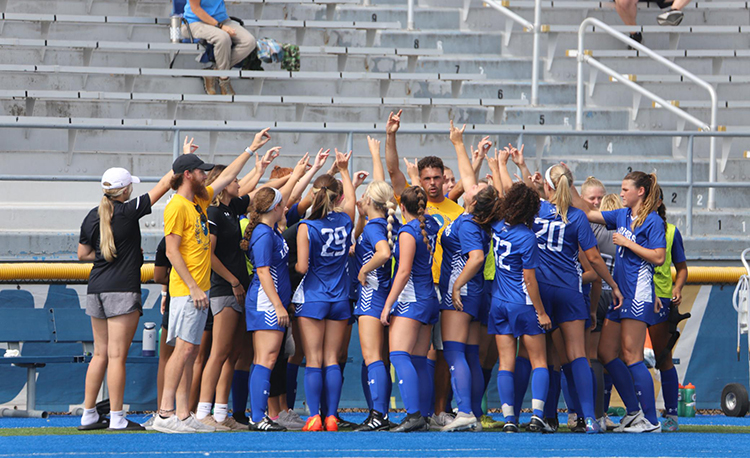
"So it really became an understanding of: ’I can’t solve the problems for them, all I can do is help them to identify what the problem is, and become people who want to create solutions. That comes from the environment that I create for them.
“That was one of the biggest things we really dove into: what are the training sessions like? What are the areas we need to grow? Is it technical? Is it IQ? Is it tactical? Is it physical?
"Outside of the field: what’s the culture like? What’s the program like? What are the players’ relationships? How are their relationships with me? Do they trust me? Do they believe in what we’re doing?
“Even though, results-driven, it might have looked like a down year, it could genuinely be a complete jump-start for a huge turnaround next year, if we start working properly now with what we’ve already built."
SCW: What does creating a really positive student athlete experience look like? What do you have to consider?
RB: "There’s one step further than just recognising they’re students and athletes, [that’s] recognising they’re people with problems outside of what we see every day.
"They have the stress of classes, training and time management. You’re taking 17 and 18-year-old kids, bringing them into a program and helping them become young adults that are going to be professionals, outside of the game.
“I would love one of my players to be good enough to go pro. If that’s one of their dreams, I’ll help them do that.
"But realistically they’re going to be a professional outside of it. So we focus on how we can help develop them into quality human beings, which translates to being quality players.
“We focus on the little details. How are you doing with taking care of yourself? Are you getting enough sleep? Are you eating enough? Are you drinking enough water? Are you taking care of yourself on your mental days? When we don’t have any training, what are you doing for you?
"We focus on study-hall hours, making sure they’re focused on getting their grades, and then soccer. Not the other way around.
“One of the areas we really dove into during preseason was how we interact with each other and how we can have accountability, in a way that’s not demeaning and degrading. We don’t have to put people down to set a high standard.
"At the same time, we can’t have a positivity-toxic environment, where you can do something wrong, but we keep telling you ’It’s okay, things will work out.’ It has to be a little bit of both.
"Don’t dwell on the downs. Recognise the downs make the ups that much better..."
“I constantly tell them, ’there’s never a wrong decision in football, other than kicking the ball into your own goal’. There are harder decisions and there are easier decisions.
"You can make one of the hardest decisions in the world and execute it perfectly. You could do one of the easiest things in the world and not execute it, but that doesn’t mean it was the wrong decision, just the wrong execution.”
SCW: For someone who is going into their first season as a head coach, what three pieces of advice would you give to them?
RB: "First is having an organisational plan for the season - having everything scheduled out, with travel, getting meals, doing your budget.
"If you can knock that stuff out during the summer, leading up to preseason, all you have to do during the season is coach and recruit. And those are the fun parts, right?
“Secondly, and this comes from my previous head coach, remember to enjoy the ups and downs.
"When things don’t go well, you’re going to dwell on the downs so much, instead of being able to recognise that the downs just make the ups that much better.
"And vice versa - you can’t live on the highs if you don’t experience the lows, because then you don’t genuinely get to understand what that high really is.
“The last one is remembering that they are just kids, and they want to do the best they can for the people that care about them.
"If you create the right environment, they’re going to work hard. And if you care, they care."
Related Files
Newsletter Sign Up
Coaches Testimonials

Gerald Kearney, Downtown Las Vegas Soccer Club

Paul Butler, Florida, USA

Rick Shields, Springboro, USA

Tony Green, Pierrefonds Titans, Quebec, Canada
Subscribe Today
Discover the simple way to become a more effective, more successful soccer coach
In a recent survey 89% of subscribers said Soccer Coach Weekly makes them more confident, 91% said Soccer Coach Weekly makes them a more effective coach and 93% said Soccer Coach Weekly makes them more inspired.
*includes 3 coaching manuals
Get Weekly Inspiration
All the latest techniques and approaches
Soccer Coach Weekly offers proven and easy to use soccer drills, coaching sessions, practice plans, small-sided games, warm-ups, training tips and advice.
We've been at the cutting edge of soccer coaching since we launched in 2007, creating resources for the grassroots youth coach, following best practice from around the world and insights from the professional game.
